Text
'You are not in the real world. You are not interested in anything that interests others. - Jeanne, do you believe that we will be judged?' (Marika Green, Robert Bresson)


JEANNE
“You are not in the real world. You are not interested in anything that interests others.”
MICHEL
“Jeanne, do you believe that we will be judged?”



Robert Bresson, Pickpocket
Marika Green: Jeanne
Martin LaSalle: Michel
"Vous n'êtes pas dans la vie réelle. Vous ne vous intéressez à rien de ce qui intéresse les autres."
"Jeanne, est-ce que vous croyez, vous, que nous serons jugés ?"

#art#cinema#robert bresson#movies#bresson#film director#portrait#bible#actress#photography#goddess#marika green#jesus#real world#the judgement day#redemption#book of revelation#god#classic movies#actor#pickpocket#martin lasalle
1 note
·
View note
Text
'He wanted to do something for her and wished she would ask it of him. She would ask nothing but questions.' (The Portrait of a Lady)
Video: 'a general impression of life'
Nicole Kidman, Jane Campion, Henry James
films7 on x/twitter
#art#love#cinema#jane campion#nicole kidman#life#the portrait of a lady#literature#classic literature#woman#henry james#novel#american literature#actress#lady
3 notes
·
View notes
Text
Bruce Springsteen: “Trust is a fragile thing. It requires allowing others to see as much of ourselves as we have the courage to reveal. But “Brilliant Disguise” postulates that when you drop one mask, you find another behind it until you begin to doubt your own feelings about who you are.”
Films7 on X/Twitter (Born to Run, Chapter 51. 'Tunnel of Love')
youtube
Bruce Springsteen - Brilliant Disguise (Official Video)
7 notes
·
View notes
Text
Kristen Stewart reads: "I saw us having sex…"
films7 on x/twitter
Audiobook: 'Girl Boy Girl, How I Became JT Leroy', by
Savannah Knoop. Narrated by Kristen Stewart. Length: 5 hours and 47 mins. Recorded Books, available on Audible.
#kristen stewart#love#audiobook#book#kstew#kristenstewart#lgbt#lgbtqia#love story#jt leroy#actress#actor#narrator
9 notes
·
View notes
Text
Wotan: 'For one alone winneth the bride; one freer than I, the god!' (Patrice Chéreau, Bayreuth)
Wotan
For one alone winneth the bride;
one freer than I, the god!
The Ring of the Nibelung
(Denn Einer nur freie die Braut,
der freier als ich, der Gott!)
Richard Wagner,
Der Ring des Nibelungen: Die Walküre
Bayreuth 1979,
Patrice Chéreau / Pierre Boulez
Gwyneth Jones: Brünnhilde
Donald McIntyre: Wotan
#art#opera#music#richard wagner#singer#the ring#classical music#love#wagner#goddess#god#daughter#father#patrice chéreau#bayreuth#brunnhilde#wotan#pierre boulez#the ring of the nibelung#der ring des nibelungen#die walküre
1 note
·
View note
Text
74 years old, Bruce Springsteen, still roaring: 'And left us running, burned and blind, Chasing something in the night'
Chase Center, San Francisco, 28 March 2024
films7 on twitter
14 notes
·
View notes
Text
René Girard: The ‘jealousy’ that Cain feels toward his brother is inseparable from the deprivation of sacrificial outlet that defines the character. We can only deceive violence to the extent that we do not deprive it of all outlet, where we provide it with something to sink its teeth into.
'Adam Raised a Cain', Bruce Springsteen
French text on X/Twitter: films7
René Girard: “We can only deceive violence to the extent that we do not deprive it of all outlet, where we provide it with something to sink its teeth into. Perhaps this is what the story of Cain and Abel signifies, among other things. The biblical text provides only one detail about each brother. Cain tills the land and offers to God the fruits of his harvest. Abel is a shepherd; he sacrifices the firstborn of his flocks. One of the brothers kills the other, and it is the one who does not have this deceptive violence of animal sacrifice. This difference between sacrificial worship and non-sacrificial worship is truly one with God’s judgment in favor of Abel. To say that God approves of Abel’s sacrifices and does not approve of Cain’s offerings is to restate, in another language, the divine language, that Cain kills his brother while Abel does not.
In the Old Testament and Greek myths, brothers are almost always enemies. The violence they seem inevitably called to exercise against each other can only dissipate on third-party victims, sacrificial victims. The 'jealousy’ that Cain feels toward his brother is inseparable from the deprivation of sacrificial outlet that defines the character.”
youtube
Adam Raised a Cain (Bruce Springsteen Live at The Paramount Theatre 2009)
#bruce springsteen#songwriting#art#music#singer#springsteen#cain#abel#love#bible#god#sacrifice#violence#rené girard#old testament#jealousy#hate#jesus#Youtube
3 notes
·
View notes
Text
Patti Smith on art, music and the spirit of punk: “you look at like Jesus saying, ‘Okay, all you have to do, basically, people, is love one another, and everything will build on that.’ But then you have everyone coming after him that says, 'Okay, you have to love one another, and here are these 40 other rules’”
youtube
Patti Smith: “For me, it’s not about tradition at all; it’s about rules and regulations. I like history; I like certain traditions; I like certain rituals, but as soon as they’re encased in rules and regulations, they become inclusive. I mean, you look at like Jesus saying, 'Okay, all you have to do, basically, people, is love one another, and everything will build on that.’ But then you have everyone coming after him that says, 'Okay, you have to love one another, and here are these 40 other rules, and then these rules and these rules, and you know you have to then be this aspect. You can’t be Protestant, or you can’t be Catholic, or you can’t be just non-denominational. As long as you pray and love, you have to be in this religion; you have to wear these clothes; you have to do'…
It’s all the rules and regulations that come with anything, with going to school, with everything we do. Even movements, great movements, important movements that make change, they get like eventually like clubs, and then all they care about is their special interest.
And I think it’s the rules—these rules and regulations—that constantly we’re fighting and trying to shed. And if that makes me, you know, less moral and my less moral because I refuse to have an organized religion, I don’t feel that at all because I feel completely unfettered. My relationship with God is unfettered by a bunch of rules and regulations about how to get to Him. And I think that, you know, is the real key, is just to be a good person. If you’re just a good person, you know, I don’t care what side of the, you know, what you know. Everybody can keep their values, keep their traditions, but you know, as Lennie said, 'live in harmony.’
I don’t think that all arts should talk to everybody. Robert Mapplethorpe didn’t feel like his x-rated photographs or his sadomasochistic photographs were for everyone. They weren’t for his mother; they weren’t for young people or children. They were for specific people. A lot of people look at a Jackson Pollock; it makes them ill, but they will love a Vermeer. You know, I don’t think that everything has to be for everybody. Some people might never like Allen Ginsberg’s poems; that’s okay. They’ll like maybe Wordsworth. You know, we have a whole spectrum and a whole, you know, all of the possibilities to enter the creative sphere and define, you know, where we relate to this expansive consciousness. And it could be through, you know, Whistler or it could be, you know, through Wagner. And it’s just, you know, I think that, you know, it doesn’t have to just be through something new or something, you know, I don’t like all new art. In fact, I can’t stand most contemporary art. You can take all of Jeff Koons and throw them into—I don’t even know; you could bury him in the Hawaiian crater.”
Other speaker: - It’s called the “shlok of the news.”
Patti Smith: “I’m just saying that it’s just, for those like Jesus said, 'those who will hear will hear, and those who will see will see.’
I would have been very happy though we were never in the mainstream. Even when we had one successful song, it was on such a controversial album that, you know, we managed always to stay, like, in the illuminated underground. I would have loved if we could have written a song on Horses, that I used to call it my dream of writing the hit of the world—writing a song that everybody heard and was like felt uplifted by it. Everybody; it was like, you know, the perfect top song, you know, 'Reach Out For Me’ or something, to write one like that. But I don’t have that gift. You know, it’s a gift that Smokey Robinson had or various people have, but I don’t have that particular gift. And I don’t say that like being humble; it’s just a truth. I mean, if I had it, I’d have written the hit of the world. I don’t think it’s important to stay in the underground to be an artist. I would love to see the greatest artists that ever lived suddenly beloved by the whole world.
You know, but, so, you know, you just, we just keep doing our work. You know, it’s like we never cared whether we were even though I had that secret dream. We didn’t do our work to, you know, make money or to be pop stars or dress in a certain way. We got in trouble at least once a week. Everything that we were asked to do, we usually did the opposite—not to be contrary just because that’s the way we were going. We were like, 'No, I’m not going to brush my hair for the cover of 'Horses.’ I’m not going to, like, no, I’m not going to wear a dress on the cover of this album. No, I’m not going to take the word 'pissing’ out of 'Pissing in the River.’ Always, always, oh, no, I’m not going to call it, you know, 'rock and roll potato’ instead of 'rock and roll.’ I’m gonna, you know, no, I’m not going to shave my armpits.’ I mean, it was like the stupidest fights every single—everything we did was a fight, right? But we were, like, we were happy to fight. I mean, Jesus Christ, you know, to be a young person, I knew if you’re going to be a poet or an artist or anything like this, a troubadour, you were going to suffer. You’re probably going to be poor; you were gonna maybe have TB (tuberculosis). I mean, anything that’s going to happen, but you were going to, you know, be blessed with the opportunity to create in this manner and unfettered by, you know, the world’s expectations and demands. You were just going to do your work, and that’s what we did.”
Other speaker: “And I would have to say that that is a legacy that we got from the counterculture of the 1960s—the sense of idealism, the sense of possibility that you could choose your own path, and if it was rocky, well, that’s, you know, that’s rolly. I mean.”
(Patti Smith discusses art, music and the spirit of punk as protest at the Nexus Institute’s Symposium 'An Education in Counterculture’ in May 2018.)
#art#music#artist#patti smith#singer#love#history#jesus#tradition#culture#religion#rituals#rules#people#church#life#Youtube
2 notes
·
View notes
Text
Dostoevsky. 'You love them both?...How does the fellow manage to love two of them? Two different kinds of love.—Aglaya will understand—No, prince, she will not. Aglaya loved like a woman, like a human being, not like an abstract spirit'
Nastasya Filippovna Barashkova / Agláya Ivánovna Epanchin


“And are you assured, at the same time, that you love Aglaya too?”
“Yes—yes—oh; yes!”
“How so? Do you want to make out that you love them both?”
“Yes—yes—both! I do!”
“Excuse me, prince, but think what you are saying! Recollect yourself!”
...
I have no words; but Aglaya will understand. I have always believed Aglaya will understand—I am assured she will.”
“No, prince, she will not. Aglaya loved like a woman, like a human being, not like an abstract spirit. Do you know what, my poor prince? The most probable explanation of the matter is that you never loved either the one or the other in reality.”
...
Evgenie Pavlovitch left the house with strange convictions. He, too, felt that the prince must be out of his mind.
“And what did he mean by that face—a face which he so fears, and yet so loves? And meanwhile he really may die, as he says, without seeing Aglaya, and she will never know how devotedly he loves her! Ha, ha, ha! How does the fellow manage to love two of them? Two different kinds of love, I suppose! This is very interesting—poor idiot! What on earth will become of him now?”
Dostoevsky: The Idiot
Part IV, Chapter IX.
#art#dostoevsky#love#literature#novel#dostoyevski#goddess#the idiot dostoevsky#classic literature#portrait#girl power#russian literature#fyodor dostoevsky#jealousy#woman#nastasya filippovna#aglaya ivanovna#the idiot
6 notes
·
View notes
Text
'If I like my cage...' "Freedom and fatherlessness have split the heroine into two disconnected halves — a partly factitious determination to be her own master, and a dark fascination with images of dominance and submission"
About Henry James & Jane Campion, The Portrait of a Lady
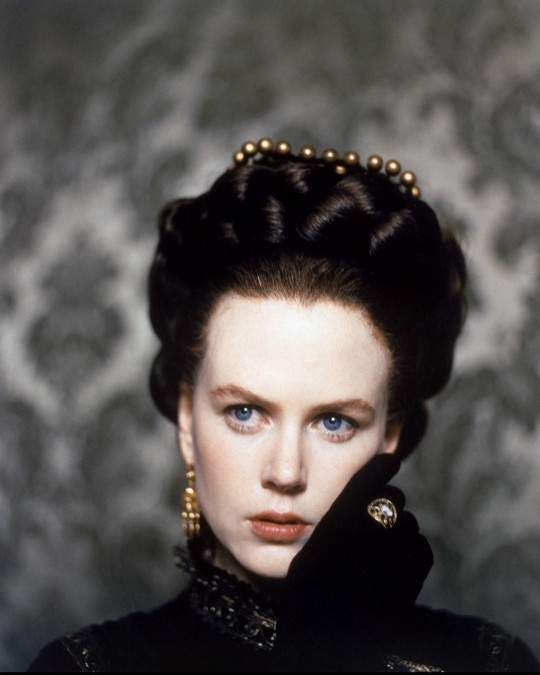
“What Isabel wants is to be initiated: even if it means being attracted to darkness.”
“According to Jane Campion, the key to the film and to the novel lies in Isabel’s psychology rather than in purely technical feats. She considers Alfred Habegger’s study as one of the best keys to Isabel, especially when he writes:
“Freedom and fatherlessness have split the heroine into two disconnected halves — a partly factitious determination to be her own master, and a dark fascination with images of dominance and submission.”
(Sophie Menoux: “We are all Isabel Archers” A “Bonne Femme” Conversation with Jane Campion and Laura Jones)
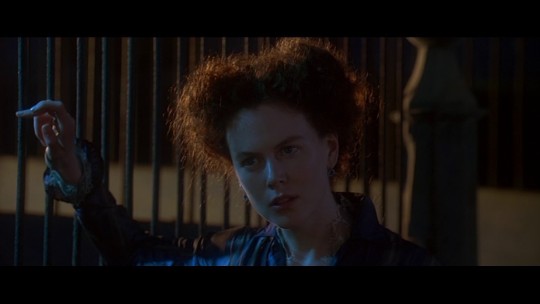
“You were the last person I expected to see caught.”
“I don’t know why you call it caught.”
“Because you’re going to be put into a cage.”
“If I like my cage, that needn’t trouble you,” she answered.”
… “You must have changed immensely. A year ago you valued your liberty beyond everything. You wanted only to see life.”
“I’ve seen it,” said Isabel. “It doesn’t look to me now, I admit, such an inviting expanse.”
“I don’t pretend it is; only I had an idea that you took a genial view of it and wanted to survey the whole field.”
“I’ve seen that one can’t do anything so general. One must choose a corner and cultivate that.”
“That’s what I think. And one must choose as good a corner as possible.”
Henry James, The Portrait of a Lady, Chapter 34
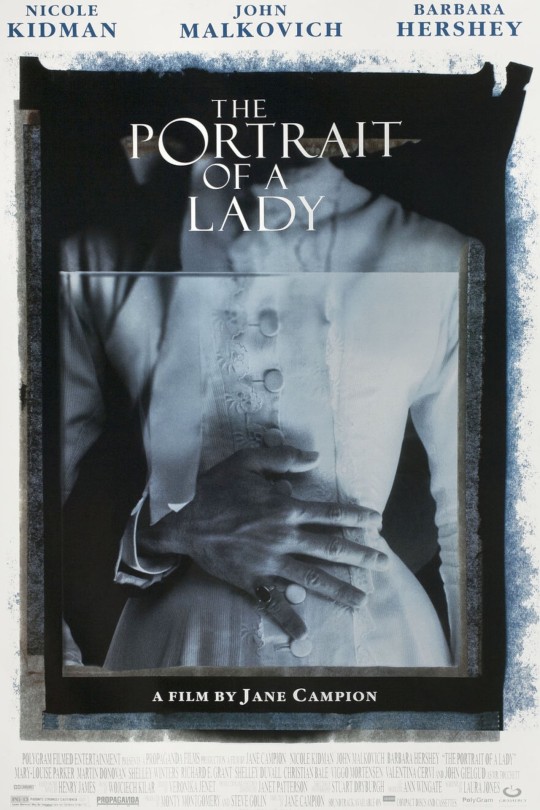
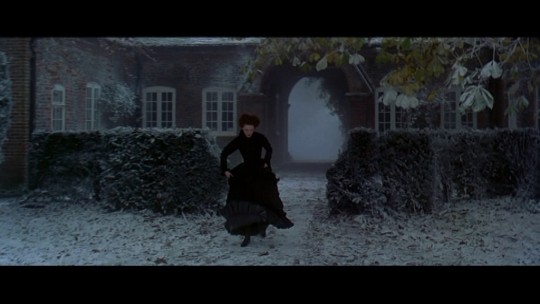
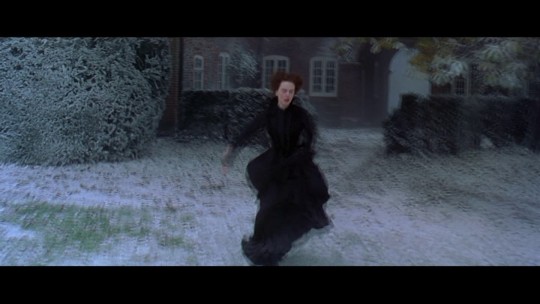
Film: Jane Campion, Nicole Kidman
#art#heroine#literature#cinema#jane campion#love#henry james#movies#director#american literature#classic literature#english literature#portrait#goddess#girl power#nicole kidman#darkness#film director#freedom#life#novel#woman#the portrait of a lady#isabel archer#initiation
4 notes
·
View notes
Text
Dostoevsky, Aglaya: 'You have no gentleness, but only justice—so you are unjust.'
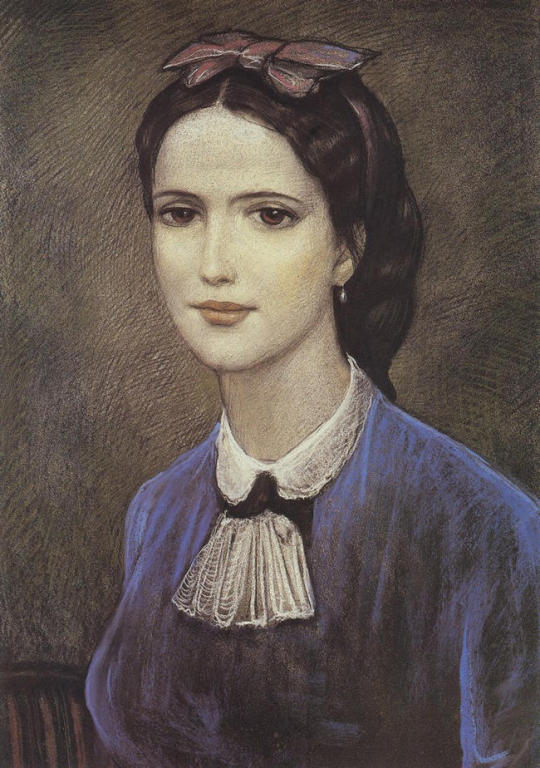
Dostoevsky: The Idiot: Aglaya Ivanovna Epanchina
“I don’t wish to joke with you, Lef Nicolaievitch. I shall see Hippolyte myself. Tell him so. As for you, I think you are behaving very badly, because it is not right to judge a man’s soul as you are judging Hippolyte’s. You have no gentleness, but only justice—so you are unjust.”
The prince reflected.
(…)
“I didn’t know they called you a fool. I certainly don’t think you one.”
“You don’t think me one! Oh, dear me!—that’s very clever of you; you put it so neatly, too.”
“In my opinion, you are far from a fool sometimes—in fact, you are very intelligent. You said a very clever thing just now about my being unjust because I had only justice. I shall remember that, and think about it.”
Aglaya blushed with pleasure.
Dostoevsky: The Idiot, Part III, Chapter VIII
#art#literature#dostoevsky#portrait#novel#the idiot dostoevsky#tenderness#dostoyevski#gentleness#girl power#justice#truth#the idiot#russian literature#aglaya ivanovna#fyodor dostoevsky
8 notes
·
View notes
Text
the masterpiece of the House of Murder in Dostoevsky, that sombre house, so long, and so high, and so huge, of Rogojin in which he kills Nastasia Philipovna. That novel and terrible beauty of a house. (Marcel Proust)
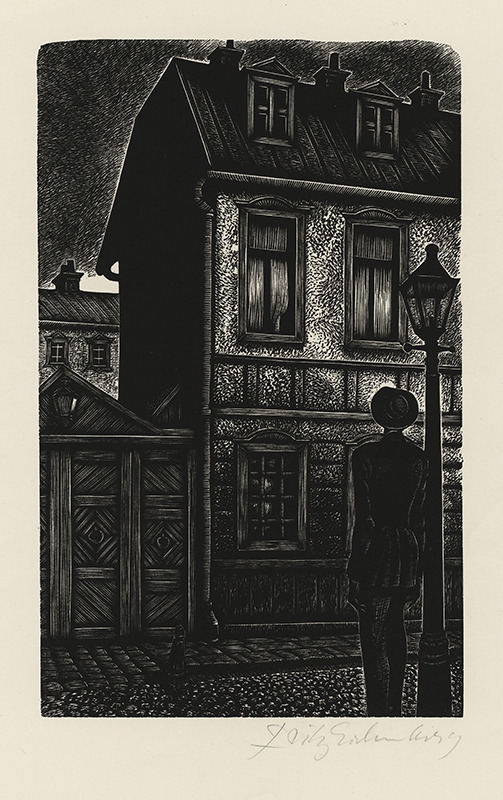
“As, in Vermeer, there is the creation of a certain soul, of a certain colour of fabrics and places, so there is in Dostoevsky creation not only of people but of their homes, and the house of the Murder in Crime and Punishment with its dvornik, is it not almost as marvellous as the masterpiece of the House of Murder in Dostoevsky, that sombre house, so long, and so high, and so huge, of Rogojin in which he kills Nastasia Philipovna (The Idiot). That novel and terrible beauty of a house, that novel beauty blended with a woman’s face, that is the unique thing which Dostoevsky has given to the world.”
Marcel Proust
'His house impressed me much; it is like a burial-ground, he seems to like it, which is, however, quite natural. Such a full life as he leads is so overflowing with absorbing interests that he has little need of assistance from his surroundings.'
Hippolyte: Rogojin
Dostoevsky: The Idiot, PART III, Chapter VII
Photo: At Rogozhin’s house - from “The Idiot” by Dostoevsky. Fritz Eichenberg
#art#dostoevsky#marcel proust#literature#house#novel#murder house#dostoyevski#home#nastasya filippovna#proust#russian literature#the idiot dostoevsky#murder#fyodor dostoevsky#burial-ground#the idiot#parfyon rogozhin#Rogojin#Crime and Punishment
2 notes
·
View notes
Text
Marcel Proust: One should never be afraid to go too far because the truth lies beyond. The true literature reveals the still unknown part of the soul.

Marcel Proust: “Bad literature diminishes. But the true literature reveals the still unknown part of the soul. It’s a bit like Pascal’s saying that I misquote, not having any books here: 'A little science distances us from God, a lot of science brings us back to Him.’ One should never be afraid to go too far because the truth lies beyond.” (Marcel Proust, to Ernst-Robert Curtius)
Photo: “Show us how to seek you.”
Olga Kurylenko - Terrence Malick, TO THE WONDER
(French: “La mauvaise littérature rapetisse. Mais la vraie fait connaître la part encore inconnue de l’âme. C’est un peu le mot de Pascal que je cite à faux, n’ayant pas de livres ici : "Un peu de science éloigne de Dieu, beaucoup de science y ramène.” Il ne faut jamais avoir peur d’aller trop loin car la vérité est au-delà.“ - Marcel Proust, à Ernst-Robert Curtius)
#art#marcel proust#terrence malick#literature#novel#soul#writer#cinema#proust#olga kurylenko#malick#storyteller#to the wonder#truth#god
2 notes
·
View notes
Text
Dostoevsky: “I would turn every minute into an age.”
The Idiot, by Fyodor Dostoevsky
Translated by Alan Myers
Audiobook read by Jefferson Mays
28 hours, Recorded Books
#art#dostoevsky#literature#audiobook#dostoyevski#life#time#death#fyodor dostoevsky#novel#russian literature#the idiot dostoevsky#the idiot
2 notes
·
View notes
Text
'Where do I point the gun?' Bruce said. 'It became awfully hard to identify an enemy.'
"Right now, though, Springsteen was fighting the enemy within."
-- 'I live on a lotta different levels, y’know.'
Bruce Springsteen: I eat loneliness, man. I feed off it. The loner thing started from the very beginning. It was like I didn’t exist. It was the wall, then me. But I was working on the inside
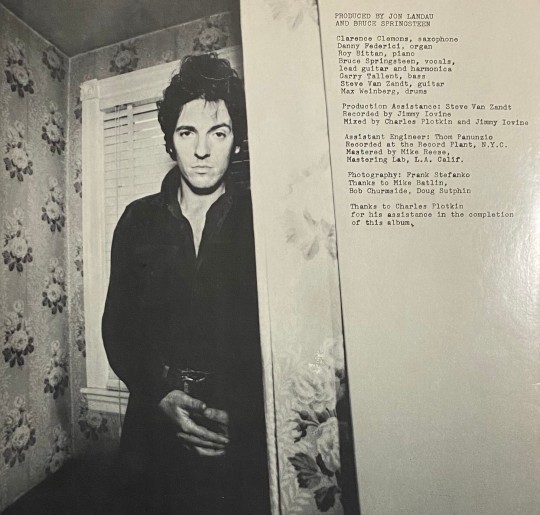
Bruce Springsteen, 1978, about his youth:
“It was like I didn’t exist. It was the wall, then me. But I was working on the inside all the time. A lot of rock and roll people went through this solitary existence. If you’re gonna be good at something, you’ve gotta be alone a lot to practice. There has to be a certain involuntariness to it. Like my youngest sister, she could play if she wanted to. But she’s too pretty. She’s popular, you know what I mean? She ain’t gonna sit in the house in her room no eight hours a day and play the piano. No way.”
Dave Marsh: "Springsteen is a loner by nature. Even today, he is the sort of person whose favorite moments often involve being alone: speeding down a highway, or just soaking up the atmosphere at four A.M. on a deserted street."
Bruce Springsteen: “The loner thing started from the very beginning. My father’s entire family were outsiders. They didn’t give a damn what anybody thought.”
youtube
Video: Bruce Springsteen dancing on stage with his mother then playing with his sister: Dancing in the Dark, London 2013


Bruce Springsteen with his mother, and his sister.
youtube
"In fact, what was troubling Bruce personally was not far removed from what he’d already conceived as the central problem The River had tried to tackle: “People want to be part of a group yet they also want to disassociate themselves. People go through those conflicts every day in little ways: Do you wanna go to the movies tonight with your friends, or stay home? I wanted to get part of that on the record—the need for community, which is what ‘Out in the Street’ is about. Songs like The Ties That Bind’ and Two Hearts’ deal with that, too. But there’s also the other side, the need to be alone.”
Bruce was beginning to feel the downside of his loner’s life—his need to be alone was becoming something tougher, more pernicious: loneliness. He later compared his emotions to the scene in The Grapes of Wrath in which an Okie farmer tries to hold off eviction with a shotgun, only to be told that the men he wants to shoot are faceless, hidden away in boardrooms hundreds of miles away. “I felt the same way he did: Where do I point the gun?” Bruce said. “In the Seventies and Eighties, especially compared to the Sixties, it became awfully hard to identify an enemy.” Right now, though, Springsteen was fighting the enemy within."
Dave Marsh
youtube
Bruce Springsteen & The E Street Band - Darkness on the Edge of Town (Live In Barcelona)
Bruce Springsteen (in the mid-Seventies): “You know, you have to be self-contained. That way you don’t get pushed around. It depends on what you need. I eat loneliness, man. I feed off it. I live on a lotta different levels, y’know, because I’ve learned to cope with people, which is—be cool all the time…I can roll with the punches. It’s a way of getting along.”
'Well now I lost my money and I lost my wife
Them things don't seem to matter much to me now
Tonight I'll be on that hill 'cause I can't stop
I'll be on that hill with everything I got
Lives on the line where dreams are found and lost
I'll be there on time and I'll pay the cost
For wanting things that can only be found
In the darkness on the edge of town
In the darkness on the edge of town'
#bruce springsteen#springsteen#songwriting#music#rock#artist#songwriter#darkness on the edge of town#the loner thing
77 notes
·
View notes
Text
Gustav Mahler allegedly advised to spend less time studying counterpoint and to read more Dostoevsky. In Mahler as in novels, happiness comes best at the edge of catastrophe
‘how a musical idea, seemingly exhausted, rekindles itself through the unexpected emergence of one of its facets suddenly revealed, how a main phrase becomes secondary under the intrusion of a counterpoint that consciously takes precedence, how this perpetual change of hierarchy occurs…’
Video: Gustav Mahler, Ninth Symphony (adagio). Leonard Bernstein
Adorno: “During a walk with Schönberg and his students, Gustav Mahler allegedly advised the latter to spend less time studying counterpoint and to read more Dostoevsky. If Mahler’s music recalls great novels, it’s not just because it often seems to tell a story. The very curve it describes is novelistic: the way it rises to exceptional situations and collapses. It performs gestures comparable to that of Natasha, the heroine of 'The Idiot,’ burning banknotes, or to Jacques Collin, the convict disguised as a Spanish priest who, in Balzac, prevents young Lucien de Rubempré from suicide and elevates him to temporary splendor. In Mahler as in novels, happiness comes best at the edge of catastrophe. (…) The attitude of those who lament Mahler’s lengthiness is no better than that of promoters of abridged versions of Fielding, Balzac, or Dostoevsky. The generous temporal extension of Mahler’s music… makes no concessions to the comfort of easy listening, which spares the listener from any memory and expectation. His music embraces duration. Mahler makes those who have outlived him shudder like a boat journey makes frequent flyers shudder. Mahlerian duration reminds them that they themselves have lost duration. (…) The epic symphony savors time, surrenders to it; it seeks to materialize measurable time in living duration. It sees in duration itself the image of meaning, perhaps in reaction to the disgrace that duration begins to suffer in the mode of production of advanced industrialism and in corresponding forms of consciousness.
Music must cease to deceive the listener about time through a true 'auditory illusion’; time must not pretend to be the moment it is not. Schubert’s celestial lengths were already the antithesis of such an attitude.” (Translated from French. Theodor W. Adorno: Mahler, A Musical Physiognomy)
Pierre Boulez: “Adorno is right about the novelistic structure in Mahler, but he doesn’t delve deep into the analysis. His reflection doesn’t rely on the description of the form, whereas there is so much to say about the form in Mahler, especially in all the finales, which are truly the pages of the highest complexity ever written in music. It would have been fascinating, for example, to show how a musical idea, seemingly exhausted, rekindles itself through the unexpected emergence of one of its facets suddenly revealed, how a main phrase becomes secondary under the intrusion of a counterpoint that consciously takes precedence, how this perpetual change of hierarchy occurs… For instance, consider the adagio of the Ninth, a kind of extraordinary extension of Tristan’s gruppetto: it is truly the Liebestod magnified, amplified by polyphony, and something Wagner would never have dared to dream.” (Translated from French. October 26, 1988, Questions to Pierre Boulez, by Henry-Louis de La Grange, MUSICAL, Châtelet Review - Paris Musical Theater: Mahler and France)
youtube
Video: Isolde’s Liebestod “Mild und leise” - Richard Wagner, Waltraud Meier, 1995
'consider the adagio of the Ninth (Gustav Mahler), a kind of extraordinary extension of Tristan’s gruppetto: it is truly the Liebestod magnified, amplified by polyphony, and something Wagner would never have dared to dream'
#of great art#classical music#art#music#artist#gustav mahler#dostoevsky#singer#richard wagner#dostoyevsky#dostoyevski#songwriting#opera#wagner#mahler#fyodor dostoevsky#storyteller#musician#waltraud meier#pierre boulez#novel#story#Youtube
9 notes
·
View notes
Text
Jennifer Connelly reads: 'From a certain point onward there is no longer any turning back. That is the point that must be reached.'
(Kafka in The Sheltering Sky / Paul Bowles)

Audiobook: The Sheltering Sky, by Paul Bowles,
narrated by Jennifer Connelly (2012, 10 hours 30 mins)
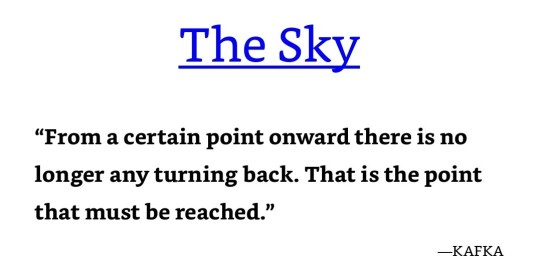
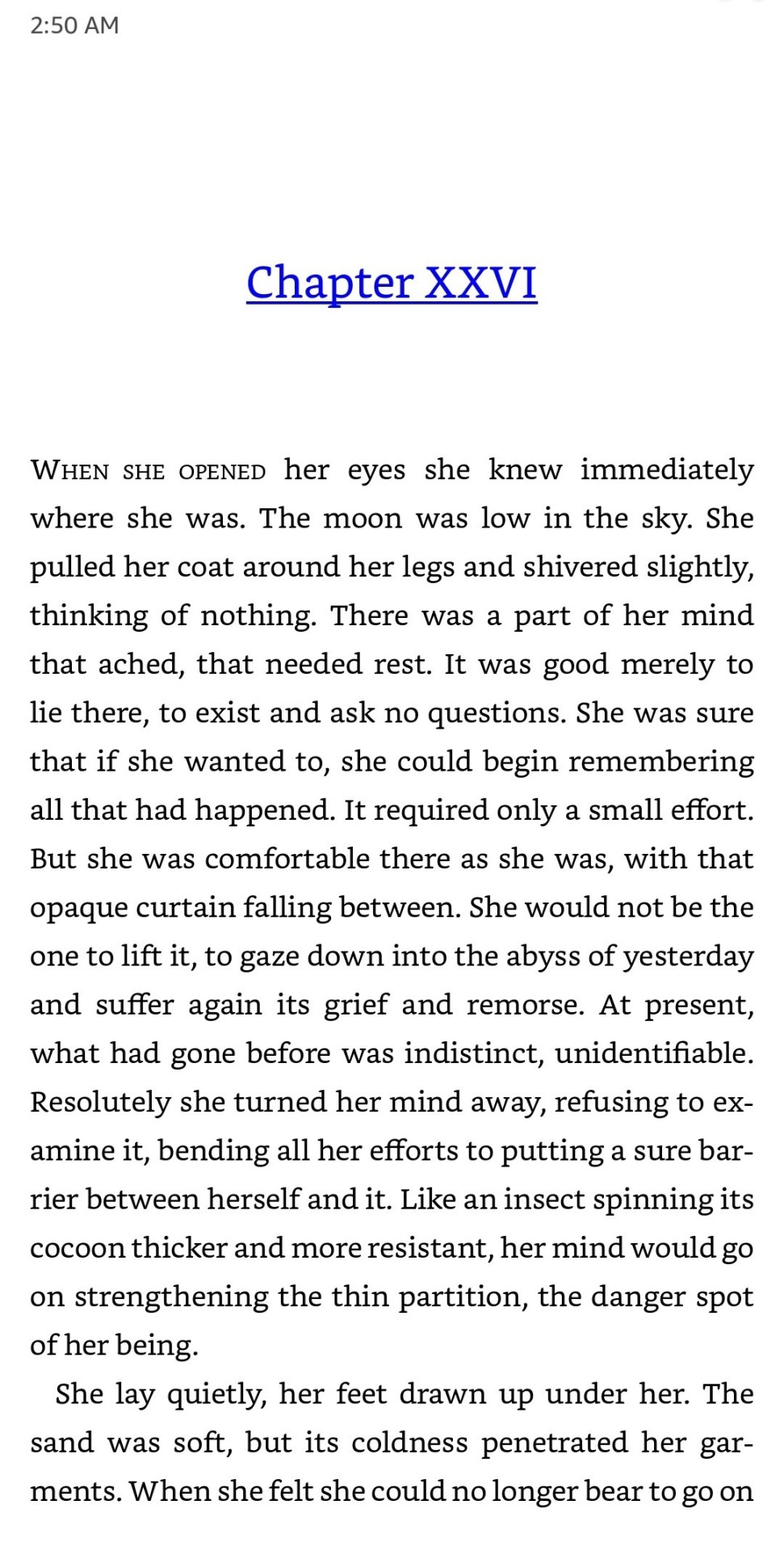

#art#heroine#literature#novel#jennifer connelly#audiobook#paul bowles#the sheltering sky#franz kafka#kafka#actress
8 notes
·
View notes